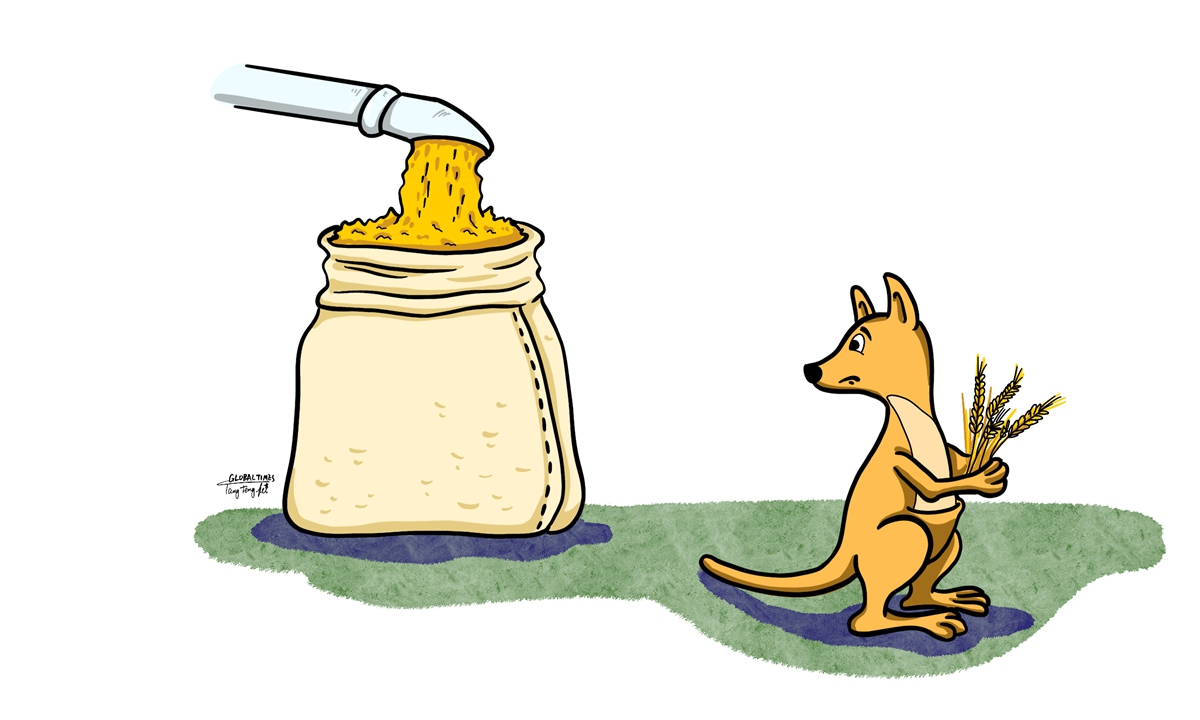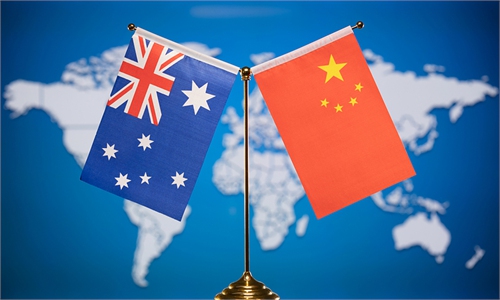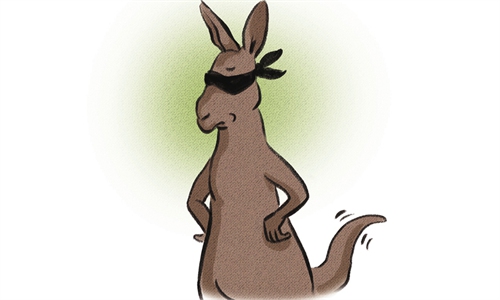COMMENTS / EXPERT ASSESSMENT
If Australia doesn’t value Chinese market, others will slip in

Illustration: Tang Tengfei/GT
Global barley suppliers including Argentina and France are swiftly filling the supply gap in China left by Australian exporters. With new supply chains taking shape, it will be hard for Australian farmers and exporters to win back their markets share forfeited as a result of Canberra's ill-conceived anti-China policies.Argentine barley has been pouring into China since last year with a rapidly growing number of shipments, according to media reports. To substitute Australian barley, China has been seeking more diversified sources of supply.
In order to safeguard the legitimate rights and interests of domestic industry and consumers, China announced anti-dumping and anti-subsidy rules for barley imported from Australia in May 2020.
With about 70 percent of Australian barely exports shipped to China, the Australian farmers and traders have inevitably felt pain caused by the actions, either lowering cost to maintain market share or attempting to explore new destinations.
Some Australian politicians and media outlets have been claiming that there is an ocean of potential new markets to suck up its produce, which may be an easy thing to say, but another thing to execute on.
China is one of the largest importers for agricultural products globally. It is hard to find an alternative market as large as China which has a stable and rosy growing prospect, especially when there are plenty global suppliers looking to grow their own market share. Without reflection, Canberra has been complaining about China's decision on Australian barley which was a normal practice and complied with WTO trade remedy rules.
Essentially it is the Morrison administration which has continued to undermine the basis of bilateral economic relations, from restricting Chinese investments to vilifying normal economic cooperation projects.
The cooperative atmosphere has been punctured by Canberra, and, attempting to separate economics from diplomacy is simply an unrealistic approach for Australia. With over 35 percent of its total exports shipped to China, Australia ought to treat Chinese investment and technology such as Huawei's 5G gear fairly.
Due to the high economic complementarities, Australia has seen continuous growth for the past decades enjoying a sustained updraft alongside China's growth. The two sides have enjoyed a sound foundation for mutually beneficial economic cooperation. Even during the COVID-19 pandemic, the decline of Australia's export to China was much lower than the overall contraction of total exports.
China has been widely deemed as the major driven force for the global recovery following the onslaught of the pandemic. With China maintaining stable growth, Australia could expect favorable recovery while most of Western countries continue to be stagnant.
However, Australia cannot have it both ways. Tying itself to the chariot of US' anti-China campaign has not delivered any benefit to Australia, let alone Australian farmers and exporters who have been longing for a return to a more amicable trade environment.
Only recently has Canberra seemed to realize the significance of repairing economic ties with its largest trading partner, but obsessing over publicity stunts and trying to blame China on all fronts was ill-advised. It is hoped the Australia can make genuine moves to restore trust and cooperation, so as to promote the sound and steady development of bilateral economic and trade relations.
The article was compiled based on an interview with Zhou Fangyin, director of Center for Pacific Island Countries Studies of Guangdong University of Foreign Studies. bizopinion@globaltimes.com.cn



